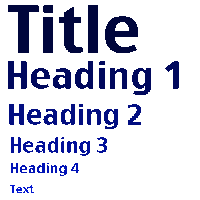10 easy steps to target organic searches with your blog posts
Search Engine Optimization is the process of getting your content to rank higher in online search results. Research indicates online search is one of the primary sources people today use for obtaining information and also that people do not tend to go very deep in the search results. This means that ranking higher in those results maximizes the chances of your content being clicked on and getting the attention you want.
Why use a blog for SEO?
 Creating unique content is essential to getting any attention in search results. For this reason, many people and companies use a blog so new articles, reviews, updates and other content can be continuously added to increase online exposure. This is one of the best tools for targeting online searches. You can keep on top of what is going on in your industry and contribute related content that your community will value. This sort of marketing is becoming increasingly prominent. Creating content that will educate, inform, entertain and benefit your community is quickly becoming one of the best possible ways to gain exposure and grow your business.
Creating unique content is essential to getting any attention in search results. For this reason, many people and companies use a blog so new articles, reviews, updates and other content can be continuously added to increase online exposure. This is one of the best tools for targeting online searches. You can keep on top of what is going on in your industry and contribute related content that your community will value. This sort of marketing is becoming increasingly prominent. Creating content that will educate, inform, entertain and benefit your community is quickly becoming one of the best possible ways to gain exposure and grow your business.
Now getting the rankings you want is no easy task. Depending on your industry and topic, there could be thousands of other people trying to compete for the same search. However, there is still a lot you can do to improve your standings and get the best possible results. Here are 10 great ways to search engine optimize your blog posts:
-
Research your keywords.
Google AdWords Keyword Tool is awesome for looking at the number of monthly searches for a given keyword and also tells you the results for a long list of related searches. In addition to that it shows you the relative competition for the keyword as well so you can determine the best phrasing of the search and what topics might be worth focusing on.
-
Page title.
The most significant place for a keyword to be placed is in the title of the page. This tells search engines (and users) what the page is about. Each page title on your site should be unique and should accurately describe the page content.
-
Page URL.
The page link should be descriptive as well. This is usually some setting in the backend of your blog. I know Blogger and WordPress have settings for permalinks that can be configured easily. The link should include the title of the post and not lengthy strings of meaningless characters.
-
Post title.
Remember your research from step 1 and write a descriptive title for your blog post. Include the keyword or phrase you are targeting while at the same time making it appealing to potential readers and accurately reflecting the post content.
- Post headings.The headings break up your posts into sections and describe the content that is to follow. These serve to inform both users and search engines what the content is about and are also an important an important place to put descriptive, targeted keywords.
-
Post sub-headings.
One of the best things you can do to SEO your blog is remember to use good sub-headings. Sub-headings should also be used continuously throughout your posts to both enhance the readability for users and insert different keyword phrases. In this post I used a heading below the post title, a sub-heading before the 2nd paragraph and smaller sub-headings for each numbered item on this list.
-
In text content.
While keyword density used to be a pretty big deal, it is not nearly as important anymore. However, it is crucial that whatever you have described in the other steps is reflected in the text. Use keywords, just not excessively. Focus mostly on making readable, interesting content.
-
Images.
Original photos with captions, descriptions and alt text make your content more pleasing to readers and give you one more opportunity to insert keywords. Plus you can target image searches as well.
-
Video.
Original videos rank very well on their own in searches and do a lot to enhance your posts. It adds another useful element for the viewer (I keep emphasizing this for a reason) and it is one more thing that can have titles and tags with keywords. Here is an example of placing a related video in your blog post. This is a short video from Matt Cutts describing common problems with article marketing and stressing the importance of creating original content that will spread organically.
-
Keep posting.
One post about fly fishing on a graphic design blog will not be given the same value as a post about fly fishing on a fly fishing blog. Continue writing posts about your topic and industry and your entire blog will begin seeing improved results. Plus, as you create related posts you can take the opportunity to reference your other posts with links and give your readers as much information as they need.


Kyle, I’m a newbie to blogging and really enjoyed your insights. Thanks for the follow btw on twitter. Just followed you back. Cool list of music. Some I’ve never tried but will now.
Best,
The Education Vigilante